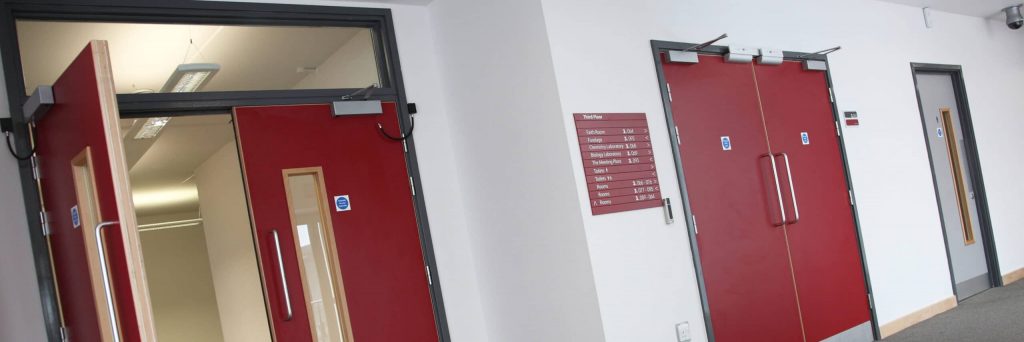If you’re a building owner or manage a commercial or residential property with multiple
occupants you will be well aware of the importance of fire doors as part of fire precaution
measures.

Fire prevention in buildings is heavily regulated. Failure to comply with regulations can
lead to prosecution, heavy fines and, in some cases, a prison sentence. Commercial and
residential buildings must have internal fire doors in line with Approved Document B of The Building Regulations 2010 (fire safety) volume 1: Dwellings, 2019 edition incorporating 2020 and 2022 amendments.
Converted residential properties, such as HMOs, halfway houses and residential care
homes, are also subject to the Regulatory Reform (Fire Safety) Order 2005
Following the awful tragedy of the Grenfell Tower fire, the Hackett Review and the
Grenfell Tower Inquiry highlighted issues surrounding fire safety. Many of the Inquiry’s
recommendations have been included in amendments to the existing regulations and the
Fire Safety (England) Regulations 2022 was introduced on 23 January 2023.
What is the Fire Safety Order?
The new regulations apply specifically to residential buildings where there is multiple
occupancy and covers both high rise and non-high rise buildings. Whether your property
is a terraced house converted into two flats or a purpose-build block of multiple flats,
there are new requirements for the inspection and maintenance of fire doors.
For residential buildings 11m high or more, flat entrance fire doors must be checked
every 12 months and fire doors in communal areas must be checked every three months
as a minimum. Those responsible for any multi-occupancy residential building, regardless
of height, must provide residents with fire safety instructions and information about the
importance of fire doors.
Why do fire doors need to be inspected?
It’s very easy for fire doors to become ineffective, especially those in communal areas, be
it through general wear or tear or from material damage. When fitted correctly, a
certified fire door is resistant to fire and smoke and gives residents time to vacate the
building safely. But seals can be damaged, fixtures and fittings may not be correctly rated
and if the door doesn’t shut properly it will never fulfil its intended function.
Now, more than ever, it’s essential to ensure your fire doors are in good condition and
operating as they should. Home-Approved’s fire door inspection survey is thorough and comprehensive, a 34-point check of every door and its component parts.
The written report sets out the condition of each door, along with estimated costs for any
necessary repairs.
Inspections are carried out by City & Guilds qualified Building Surveyors and in
accordance with the Fire Door Inspection Scheme & guidelines. We use sophisticated
technology to support our surveys, which ensures delivery of a written report within 24
hours of inspection. If floor plans are available we’ll upload them to our app and plot the
location of each fire door and assign unique ID numbers, which makes the report even
easier to understand.
Keep your residents safe, book a fire door inspection survey with Home-Approved today –
call us on 0800 980 3113 or email info@home-approved.com.